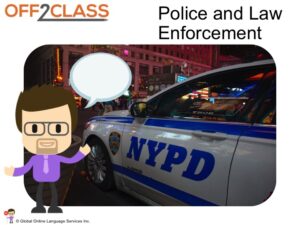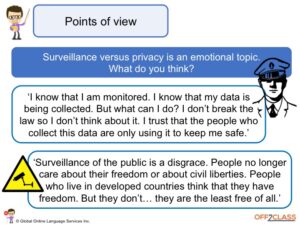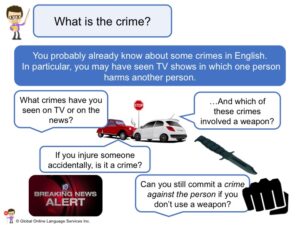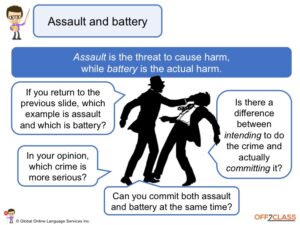5 min read
Share this post

Anyone who enjoys a good film or TV series will know that the last decade has seen the rise of Scandinavian noir. The Danish series The Killing was made into an equally successfully US production. The Swedish-Danish co-production The Bridge was remade with the same name in a US-Mexico production. In the UK it was renamed The Tunnel. These series have been syndicated around the world and will be known by any student who enjoys a good crime story.
As an avid fan of crime series, I recently binge-watched five seasons of the French crime series Spiral, or Engrenages as it is known in French. It’s a great insight into the untouristed parts of the French capital. And while the characters communicate using a lot of slang, I realized how important crime and punishment vocabulary was to follow the story line. This was the inspiration for our advanced speaking activities about crime and punishment.
Aside from the make-believe world of entertainment, law enforcement plays an enormous role in the protection (and perhaps oppression) of every society.
These days, the police and law enforcement suffer from a poor image. Here to serve and protect, in some nations the police appear more as a brutal militarized force than a public service. And of course, some law enforcement agencies are known worldwide, such as Scotland Yard and the FBI. In this lesson, get ready to hear plenty of your student’s opinions!


While privacy and surveillance might seem a little off-topic, it is both relevant to our times as our governments spy on us as we freely disseminate our personal information on the Net. While a variety of new laws have been introduced to deal with privacy in the digital age, there is no doubt that in many societies, life is much less private that it was two decades ago. In this lesson, you have the opportunity to talk about profiling, data mining, and a whole lot of things that governments and corporations seem to get away with quite freely – all in the name of our freedom.


Crime and punishment go together. It’s a human instinct that demands some form of negative consequence for any transgression of the law. Though punishments for minor and petty crimes will today receive a fine, prisons and jails are still used as punishment for more serious crimes. However, there are now strong arguments against incarceration as evidence mounts against a brutal system that creates and not reforms criminals… Worse still, in some nations, prisons now form part of the private sector, ensuring the welfare of prisoners becomes less important than delivering profit to shareholders.
While names and definitions of crimes differ across jurisdictions, we introduce here the concept of harm and the various names proposed for crimes that injure another human. This lesson also looks at the concept of intent and how it determines the crime with which you may be charged. Of course, convicting someone of a crime means proving it in court, so be ready to discuss hypothetical cases to help your student decide if it’s murder or manslaughter, assault or battery.


Even native speakers fail to distinguish robbery from burglary and thief from robber. And on top of that, in today’s English a thief steals, while to thieve is almost archaic… Steal is, of course, an irregular verb and thief has the plural form thieves. All of this means you’ll have plenty to discuss with your student, even before you start looking at fraud, theft, shoplifting, vandalism and embezzlement.
Share this post



Leave a Reply